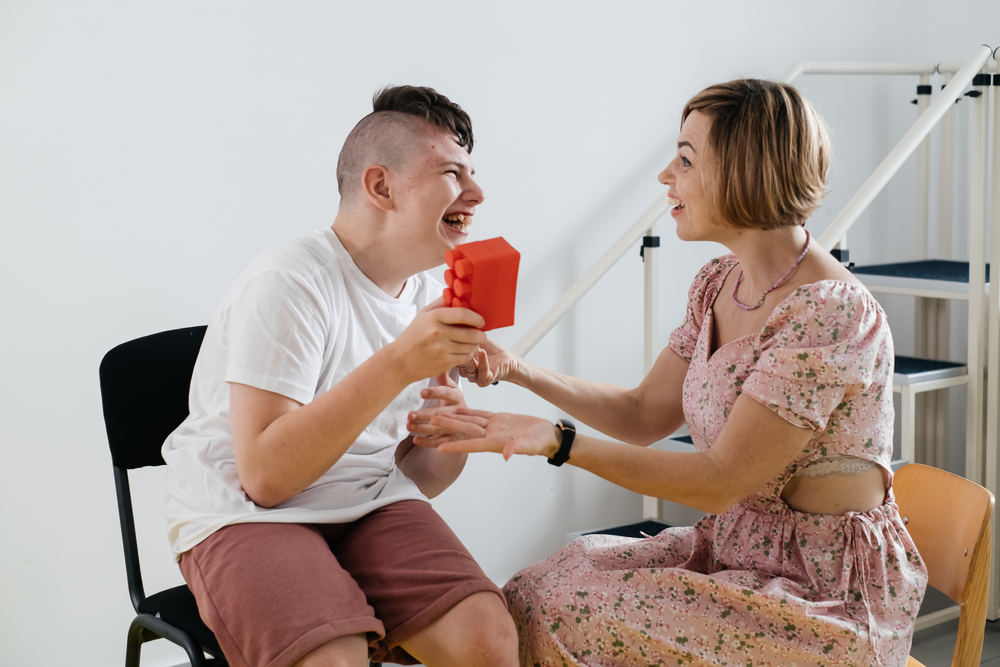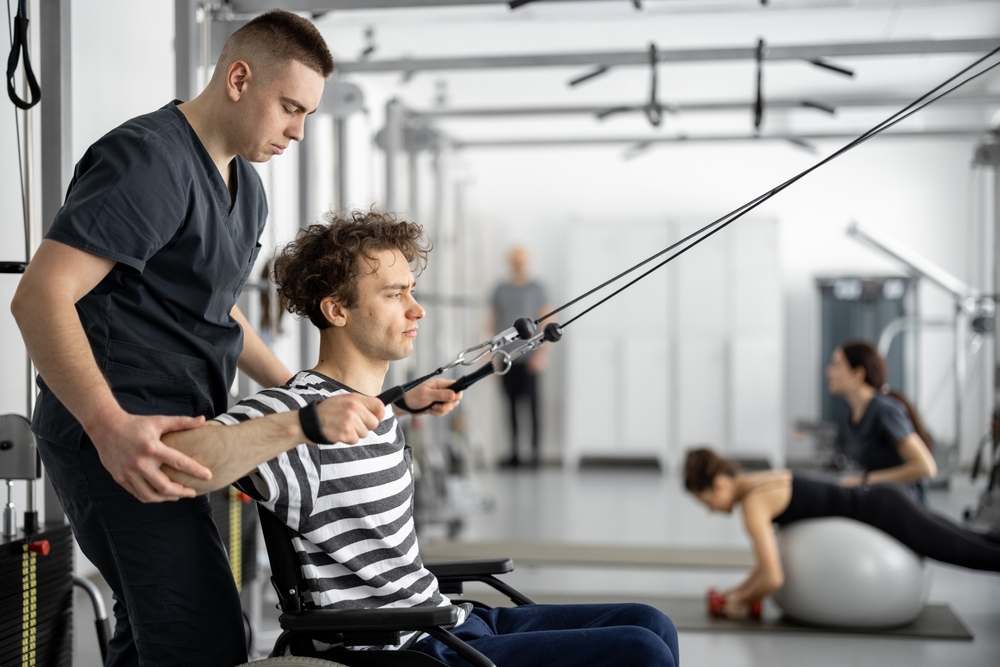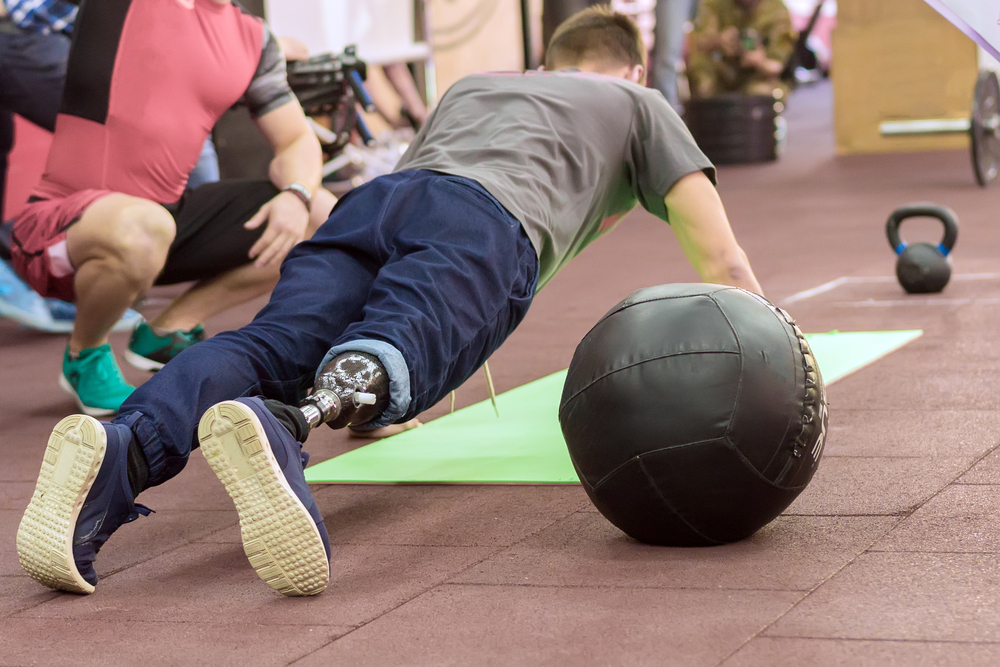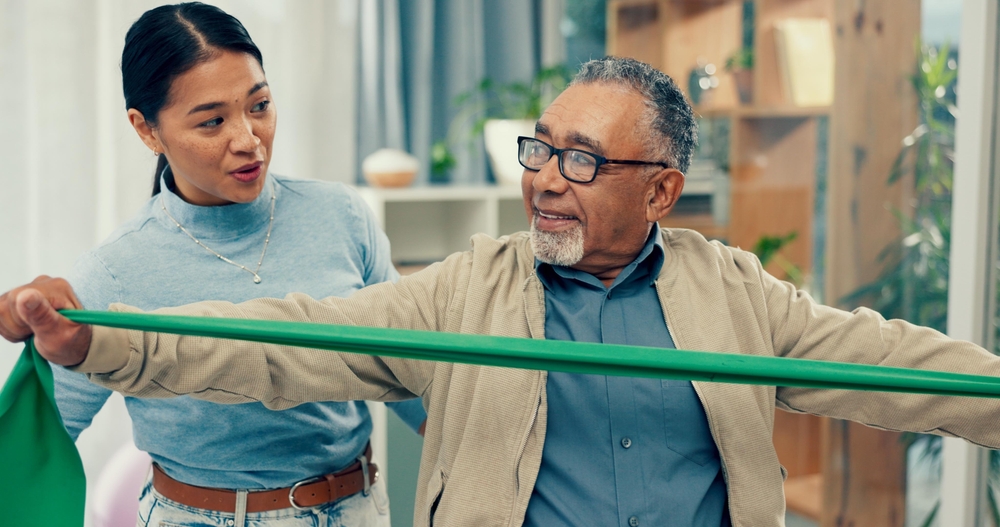Make an Appointment
Why Physiotherapy Matters on the NDIS
The National Disability Insurance Scheme (NDIS) is Australia’s landmark approach to disability supports, providing tailored funding to over 600,000 participants to meet their individual goals. At its heart, the NDIS aims to drive independence, social participation and improved well-being, moving away from block-funded services to a participant-driven model.
Physiotherapy: The science of restoring and maintaining movement, sits at the core of this model. By addressing mobility, strength, balance and pain, physiotherapists enable people with disability to access education, work, recreation and community life. Whether it’s helping a child with cerebral palsy learn to walk, a stroke survivor regain upper-limb function or an elderly participant maintain bone density and prevent falls, physiotherapy interventions translate directly into real-world gains.
Under the NDIS, physiotherapy is typically funded as an allied health support within participants’ Capacity Building budgets, recognising its role in enhancing functional capacity over time. Yet physiotherapy also intersects Core supports (e.g., safe daily transfers) and Capital supports (e.g., fitting of mobility aids), demonstrating its flexibility and central importance across the scheme ndis.gov.au.

What Is the Role of Physiotherapy in NDIS?
Physiotherapy under the NDIS encompasses a spectrum of services designed to meet the ‘reasonable and necessary’ criteria:
Assessment & Goal-Setting:
- Comprehensive movement, strength and balance assessments to inform personalised goals.
- Collaboration with participants (and families) to align therapy with life goals: school, work, independent living or recreation.
Therapeutic Interventions:
- Exercise Programs: Targeted strengthening, stretching and motor control to improve mobility and reduce pain.
- Manual Therapy: Hands-on techniques (mobilisations, massage) to address joint stiffness and soft-tissue restrictions.
- Hydrotherapy & Equipment Prescription: Use of pools, gait trainers, orthoses and mobility aids to optimise function.
Capacity Building & Skill Transfer:
- Educating participants and carers in home-based exercise routines, safe transfer techniques, and injury prevention strategies.
- Ongoing modification of programs based on progress and changing goals.
Service Agreements & Reporting:
- Development of clear service agreements outlining session frequency, therapy goals and review periods.
- Regular progress reports that feed into NDIS plan reviews and funding decisions sansupport.com.au.
By embedding physiotherapy in NDIS plans, participants gain access to evidence-based supports that build lifelong skills, rather than one-off fixes.

Why Physiotherapy Is So Important
Physiotherapy’s value under the NDIS is multifold:
- Preventing Secondary Complications: Regular physiotherapy reduces the risk of pressure injuries, contractures and osteoporosis, common and costly sequelae of immobility wisehealthcare.com.au.
- Enhancing Participation: Improved mobility and balance directly translate into greater access to work, education and community activities, core NDIS objectives. A UK study found that tailored physiotherapy increased community participation scores by 30% within six months owner.health.
- Reducing Hospitalisations & Health Costs: Proactive physiotherapy interventions can prevent falls and chronic pain flares, decreasing unplanned hospital admissions. Recent data show that every dollar invested in preventive therapy saves up to $3 in acute care costs theaustralian.com.au.
- Psychosocial Benefits: Regaining movement and function boosts self-esteem, reduces anxiety and fosters independence, key factors in mental well-being
- Empowering Self-Management: Through education and skill-building, participants learn to monitor their own bodies, set realistic activity goals and adapt to changing needs, ensuring the longevity of therapy gains.

Physiotherapy Across Disability Types
Physiotherapy’s adaptability makes it vital for a wide range of impairments:
Paediatric Disabilities (e.g., Cerebral Palsy, Spina Bifida):
- Focus on motor development, gait training and equipment prescription to achieve mobility milestones.
- Use of Play-Based Therapy and neurodevelopmental techniques to promote neural plasticity.
Neurological Conditions (e.g., Stroke, Multiple Sclerosis):
- Task-Specific Training (e.g., sit-to-stand, reach and grasp) to restore functional independence.
- Fatigue Management Programs to optimise energy levels.
Musculoskeletal Disorders (e.g., Arthritis, Chronic Pain):
- Pain-Relief Modalities (heat, TENS), joint mobilisations and graded exercise to maintain joint health.
- Falls Prevention Assessments and strength-training to preserve independence in daily activities.
Spinal Cord Injury & Amputation:
- Wheelchair Skills Training, pressure-relief techniques and prosthetic gait re-education.
- Prevention of secondary conditions like heterotopic ossification, joint contractures and pressure ulcers.
Aged Care & Frailty:
- Balance retraining, home hazard assessments and mobility aid prescription to reduce fall risk.
- Functional strength programs to sustain independence and reduce carer burden.
Physiotherapists work collaboratively with occupational therapists, speech pathologists and exercise physiologists to deliver multidisciplinary care tailored to each individual.

The Three Main NDIS Support Budgets
NDIS plans group funding into budgets that dictate how and where physiotherapy can be used:
Core Supports (Everyday Activities):
- Physiotherapy here covers daily living tasks, for example: safe transfers, mobility support and routine pain-management exercises.
- Funds are flexible, allowing participants to allocate hours to therapy based on immediate needs .
Capacity Building Supports (Skill Development):
- The primary home for physiotherapy funding, focusing on building participant skills and independence.
- Supports skill acquisition in mobility, balance and endurance, with progress measured at plan reviews.
- Funding is category-specific; unused hours cannot be shifted to other budgets .
Capital Supports (Equipment & Modifications):
- Covers high-cost items like wheelchairs, standing frames and custom orthoses.
- Physiotherapists perform functional equipment assessments and write justification reports to secure approvals.
(Recurring Supports is a fourth budget for specific PACE plans and is less commonly applied to physiotherapy).
By understanding these budgets, participants can strategically plan physiotherapy hours and equipment needs to maximise their functional gains.

Frequently Asked Questions (FAQs)
Q1. What is the role of physiotherapy in NDIS?
Physiotherapy builds functional capacity through assessment, exercise programs, manual therapy and equipment prescription, enabling independence and participation.
Q2. Why is physiotherapy so important?
It prevents secondary complications, reduces hospitalisations, enhances community engagement, and improves mental well-being through regained movement.
Q3. What is the role of physiotherapy in disability?
Across disabilities, from paediatric to aged care, physiotherapy restores movement, teaches self-management skills and integrates care with other disciplines for optimal outcomes.
Q4. What are the three main support budgets in the NDIS?
Core Supports for daily activities, Capacity Building Supports for skill development (primary physiotherapy budget), and Capital Supports for equipment and modifications.
Q5. How do I access physiotherapy funding?
Discuss your goals at your NDIS planning meeting; include physiotherapy in your plan under capacity building. Choose an NDIS-registered provider and finalise a service agreement sansupport.com.au.
Q6. Can I use my physiotherapy budget for group classes?
Yes, if group exercise is justified as “reasonable and necessary” to meet your goals, often used for community participation and social engagement.

Physiotherapy is a cornerstone of NDIS supports, turning funding into real-life independence through targeted movement therapies, equipment prescription and self-management education. By leveraging physiotherapy within Core, Capacity Building and Capital budgets, participants can prevent complications, enhance participation and achieve their personal goals.
Next Steps:
- Review Your Plan: Ensure physiotherapy is included under Capacity Building Supports.
- Book an NDIS Physiotherapy Assessment with Physio Inq Mobile Physiotherapy to establish goals and service agreements.
- Start Your Tailored Programme: Engage in evidence-based exercises, manual therapy and equipment trials to accelerate your journey towards greater independence.
Call 1300 731 733 or book online today and make physiotherapy your most powerful ally under the NDIS.

Date Published: Monday, June 16, 2025
Locate a Mobile Physiotherapy
Service Near me
Get the experience & convinence you deserve to support your or a loved one's allied health needs.
Our Mobile Physiotherapy team are currently serving & taking appointments in the following states and regions in Australia:
Need to get into direct contact with ur Client Services team? We're all ears. Call our team directly on 1300 731 733





